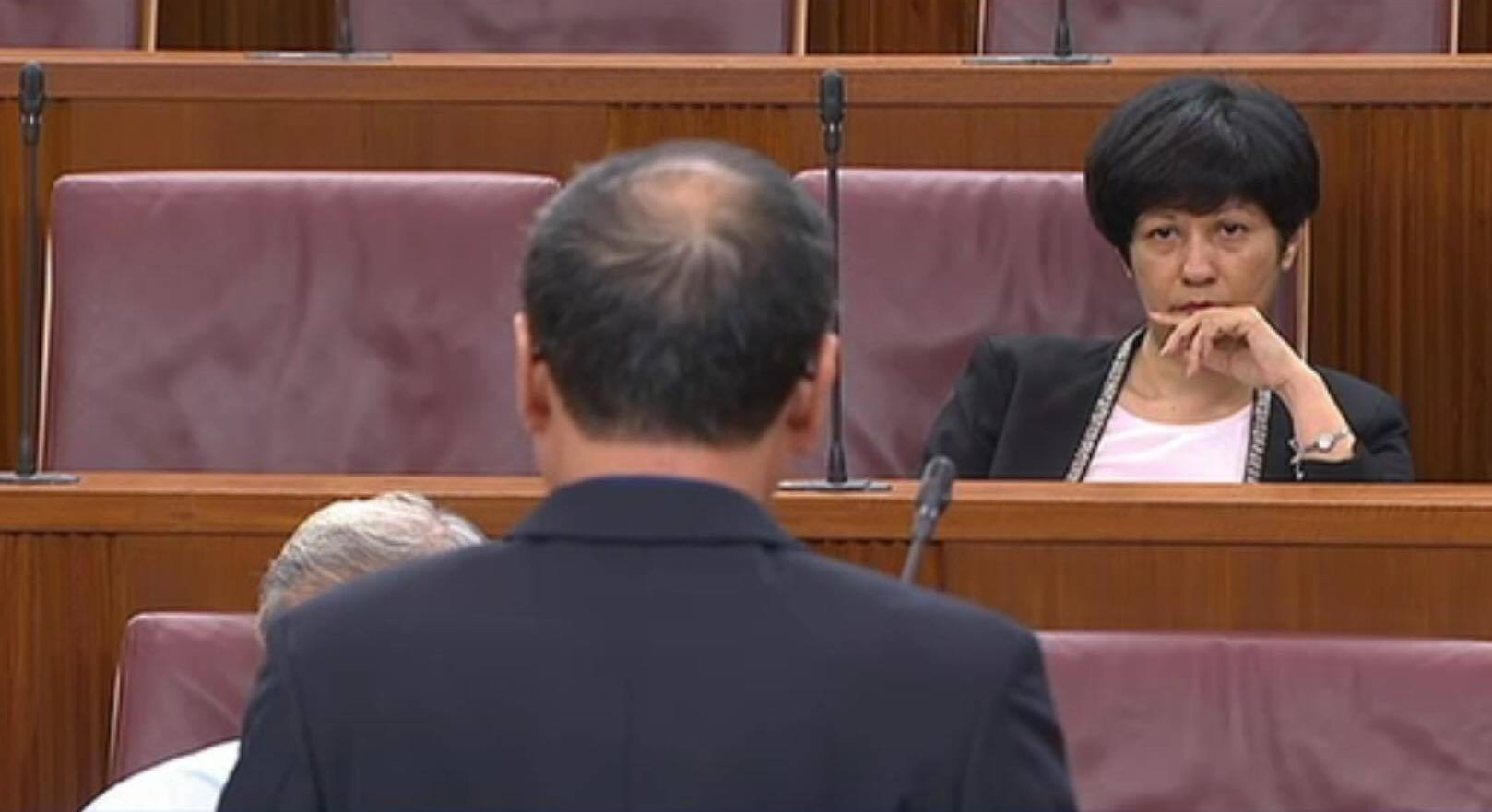For those people wondering why Chee Soon Juan is not elected into the parliament, the debate in parliament between the government and Workers' Party (WP) yesterday is a test case of how politics actually work in Singapore.
Not how we wish politics to be.
It's not The West Wing or The House of Cards.
It is a pragmatic approach to politics and policy-making that has little to do with populist rhetoric.
So what was the issue?
Two WP MPs debated with the Senior Minister of State over a change to the Government Proceedings Act (GPA).
Can the Government Proceedings Act be eaten?
The Government Proceedings Act enables the government to sue and to be sued.
So what does it really mean?
The amendment meant that there will be a removal of a limit to how much legal fees the Government can be awarded when it goes to the court.
Previously, the amount was capped at the costs of two lawyers.
Who was involved in the debate?
1. Indranee Rajah, Senior Minister of State for Law
2. Sylvia Lim, WP Chairman
3. Low Thia Khiang, WP Secretary-General
The government's take:
SMS Indranee said that the change was to "bring it in line" with normal civil proceedings.
She added that the court has "the discretion to allow costs for more than two counsels if the court really thinks this is an appropriate place to do so".
WP's take:
Lim said that the prospect of a heavy legal burden in legal costs could have a "dampening or even crushing effect on persons involved in suits against the government".
Low wondered if the change will "raise the perception of Singaporeans that the Government is using the clause to intimidate Singaporeans in bringing any legal case against the Government".
He concluded with a rhetorical question: "So is it a good thing for Singapore as a society that the people who feel somehow being victimised by the Government, but are intimidated by the costs that you don't know how much the court is going to decide?
What do all these debates mean?
It is about politics.
And good politics need to be rooted in reality and an appreciation of a general consensus that has been formed in a society.
Remember DPM Tharman's zinger at the PAP by-election rally last Thurday?
"But I want to say something about the SDP. Because they think this is their strength. They have written policy papers. Some very thick ones. But policies are not about research papers, policies are ultimately about politics. They are ultimately about the type of politics that surrounds and clothes a policy."
As The Straits Times' Janice Heng astutely pointed out in her commentary ("Engaging concerns of politics in policymaking"), she noted the "politics" behind the debate:
"What policymakers see as reasonable changes to legislation can give rise to equally legitimate concerns among opposition MPs about the political effects of such changes."
The Law Ministry must be slightly taken aback by the questioning from the WP MPs, for the amendment to GPA was seen by "mainly technical in nature" and it wasn't even mentioned in SMS Indranee's speech.
To sum it all up, these are in short the perspectives from both parties:
PAP's glass half-full take on the government: Just a procedural change. Leave it to the experts (the courts) to judge. And if the costs are awarded in the first place, then the accusers are wrong (and should be deterred). Trust us.
WP's glass half-empty take on the government: Perception matters. The change appears to increase the risks of losing the case against the government. And the government already have huge resources with the entire legal service and civil service at its disposal. Not fair.
It is natural to be disappointed that both parties are talking at cross-purposes because they could not see things from their opponents' perspectives.
But one can at least take heart that the parliamentary debates are rooted in reality.
It is the politics of incrementalism - the things both the PAP and WP do to improve things, rather than an idealistic notion of change that is not tempered by time and hard experience.
Screenshot from Toggle
If you like what you read, follow us on Facebook and Twitter to get the latest updates.
If you like what you read, follow us on Facebook, Instagram, Twitter and Telegram to get the latest updates.
